Age-well Blog
The Age-well Blog is our regular journal about strategies to slow down the aging process and age healthily, look younger, keep your mind and brain alert and prevent age-related diseases.
Monitor This Page
If you enter your e-mail here, you will be notified each time a page on this site is updated or whenever a news item is added to the blog.
|
Monitor this page |
|
powered by ChangeDetection |
Click Here to go to directly to newest blog entries
Why Monitor This Page?
Consulting this Blog on a regular basis:
* Lets you know whenever any new web pages appear on age-well.org, keeping you up-to-date with all the latest information on how to age in the best way possible.
* Keeps you up-to-date with other postings or news about aging and tips to slowing down the aging process.
* Gives reviews on books, articles and other information that complements the information on age-well.org site.
* Lets you know when we send out the Age-well e-zine (in case you don't like to give your e-mail address, or if your ISP tends to over-filter causing you to miss an issue).
* Gives you information on the best products which are currently available to help you achieve your anti-aging objectives. To subscribe to the Age-well Blog (no e-mail necessary), right-click on the orange RSS button (see bottom buttons to the left) or control click if you are a Mac user, and then paste the URL into your RSS reader. Or click on the Google, My Yahoo! button, My MSN button, Newsgator, or Bloglines button if you keep a personalized home page there.
If you are not sure what RSS and blogging is all about, click on “What's an RSS Feed?” Once you start, you will be amazed at what RSS can do.
We hope you will enjoy this experience. Have fun.
Apr 08, 2022
top 10 easy list to lose belly fat
hey guys, Actually I want to lose my belly fat. i tried lot of hard works. after that, I realized we want to change little things in our daily routine
Dec 11, 2021
Light Asparagus, Chicken Quinoa Bake
INGREDIENTS 1 c. Chicken broth 1/2 c. Corn flour (substitute all-purpose flour) 2 c. milk 1 Tbsp. Roasted Garlic Montreal Chicken seasoning 3/4 c. Uncooked
Dec 11, 2021
Easy Ways to Lose Belly Fat
WHAT IS BELLY FAT? Belly fat is excess abdominal fat surrounding the organs in your stomach. There are three types of fat: triglycerides (the fat that
Dec 11, 2021
BALSAMIC CHICKEN
Honey Balsamic Chicken with Veggies Ingredients: 1/4 cup Italian salad dressing 3 Tbsp balsamic vinegar 2 Tbsp honey 1 1/4 lbs chicken breast tenderloins
Sep 26, 2020
14 Tips to Lose Belly Fat Effortlessly
These are 14 tips that'll help you lose weight and reduce your belly fat fast without crazy strict diets. It's important to reduce visceral fat because,
Sep 26, 2020
Beef and Ale Hotpot
INGREDIENTS olive oil 3 sticks of celery 3 carrots 3 onions ½ a bunch of fresh rosemary , (15g) or 3 bay leaves 1 heaped tablespoon plain flour 500 ml
Apr 28, 2020
How I lost huge belly fat
I had discomforting belly fat for years, that caused numerous amount problem and unsatisfaction in my life- my wife had problems with my sex, I didn't
Apr 28, 2020
belly fat - shedding the fat and getting flat
As mother of many... keeping my belly flat instead of fat has been challenging. When you're pregnant... a fat belly is exciting because there is a good
Continue reading "belly fat - shedding the fat and getting flat"
Apr 28, 2020
GARLIC & LEMON CHICKEN WITH RED POTATOES & GREEN BEANS !
WOW!!!! THIS IS AWESOME!!!! AND VERY POPULAR!!!! GARLIC & LEMON CHICKEN WITH RED POTATOES & GREEN BEANS ! (Gluten free. Low Carb, Diabetic Friendly and
Continue reading "GARLIC & LEMON CHICKEN WITH RED POTATOES & GREEN BEANS !"
Apr 28, 2020
Soup au Pistou the authentic
Ingrédients 1 oignon 2 courgettes 125 g de haricot coco blancs frais 125 g de haricot coco rouges frais 250 g de haricot vert plats frais 3 pommes de
Apr 28, 2020
German Potato Horseradish Soup
Ingredients 400 g potatoes 2 onions 1 tbsp butter 1/2 liter vegetable broth instant - How to make Vegetable Broth - 1/4 liter heavy cream 1 egg yolk 2-3
Apr 28, 2020
German Potato Horseradish Soup
Ingredients 400 g potatoes 2 onions 1 tbsp butter 1/2 liter vegetable broth instant - How to make Vegetable Broth - 1/4 liter heavy cream 1 egg yolk 2-3
Apr 28, 2020
Stronger than Botox: My Homemade Anti-Wrinkle Scrub
Last year, my skin was tired ... ... and desperately needed a boost. And since I am against toxic products, there was no question that I used Botox. So
Continue reading "Stronger than Botox: My Homemade Anti-Wrinkle Scrub"
Mar 21, 2019
German Potato Horseradish Soup
Ingredients 400 g potatoes 2 onions 1 tbsp butter 1/2 liter vegetable broth instant - How to make Vegetable Broth - 1/4 liter heavy cream 1 egg yolk 2-3
Mar 21, 2019
Papet Vaudois
Le papet vaudois est une des spécialités vaudoises les plus connues. Il est à base de poireaux et de pommes de terre avec une sauce au vin blanc et à la
Mar 21, 2019
Cornish Soup (Horseradish and potatoe)
Ingredients 1 onion 2 garlic cloves 3 - 4 red potatoes 30 grames of horseradish (freshly grated) lemon stock parsley oil to cook Method peel onion -
Dec 30, 2018
Easy Cauliflower Cheese with Leeks
*1 smallish head cauliflower (about 2 pounds), green leaves removed *Olive oil, for drizzling *1 small leek, white and light green part only, very thinly
Dec 30, 2018
Melt in the mouth - Butter Chicken
INGREDIANTS 1 medium yellow onion, diced 3 cloves garlic, finely chopped 3 tablespoons grated ginger 1 tablespoon garam masala 1 6-ounce can tomato
Dec 21, 2018
Pulissery (Coconut and Yogurt Curry)
TOTAL TIME: 20 minutes SERVES: 4 2½ cups water Kosher salt 1 large Kirby cucumber, cut into 1-inch pieces 1 cup grated coconut, fresh or frozen 1 serrano
Dec 20, 2018
Easy Cauliflower Cheese with Leeks
*1 smallish head cauliflower (about 2 pounds), green leaves removed *Olive oil, for drizzling *1 small leek, white and light green part only, very thinly
Dec 20, 2018
Healthy homemade pesto
INGREDIENTS: 1 cup fresh basil leaves 3 cloves garlic, peeled 3 tablespoons pine nuts 1/3 cup freshly grated Parmesan Kosher salt and freshly ground black
Jun 15, 2018
DASH Food Pyramid - Dietary Approaches to Hypertension
DASH Food Pyramid - a people who wish to folllow the DASH diet, which helps to lower blood pressure, in addition to many other health benefits
Continue reading "DASH Food Pyramid - Dietary Approaches to Hypertension"
Apr 19, 2016
osteoporosis prevention
This page on osteoporosis prevention is part of a whole section on age-well.org devoted to osteoporosis, signs and symptom, prevention as well tips on how to live with the disease
Apr 11, 2016
Eye Care as we Age
You only have one pair of eyes - learn how to keep your eyes in good health for the rest of your life, with links to age-related eye disease and how to recognize, treat and prevent it.
Apr 11, 2016
Useful Overview vitamins - A to Z
Overview Vitamins from A to Z, with links to more in-depth information on specific vitamins
Apr 11, 2016
Stay well - Preventing Age-related diseases
Stay well by following our advice on the prevention of age-related diseases
Continue reading "Stay well - Preventing Age-related diseases "
Apr 11, 2016
Healthy Meals to Age Well
Do you want to know how to eat healthy meals to age well - all about healthy eating, nutrition, vitamins, minerals, fiber, calories - everything you ever wanted to know about healthy eating
Apr 11, 2016
acupuncture for lumbago and other types of pain
Acupuncture for lumbago -The use of acupuncture in the treatment of lumbago and lower back pain
Continue reading "acupuncture for lumbago and other types of pain"
Apr 11, 2016
Looking After Your Back
Looking after your back to prevent back problems as you age and keep your spine in good order
Sep 23, 2015
Tuna Salade Surprise
Prep and Cook Time: 20 minutes Ingredients: 2 6 1/2 oz cans of light tuna, drained 1/4 cup finely diced celery 3 TBS chopped walnuts 3
Feb 16, 2015
prevent falls as You Age
prevent falls as you age, accident prevention and preventing breaking bones as you age
Jan 28, 2015
Eat Well Forum
Visit our eat-well forum if you want healthy meal recipes to help you age well - share your healthy recipes and get new dishes here
Nov 18, 2014
Healthy Tostadas
Ingredients 8 corn tostada shells 2 cups sliced mushrooms, button or crimini 1 cup onion, diced ½ teaspoon garlic, minced 2 tablespoons olive oil
Nov 18, 2014
Healthy Tostadas
Ingredients 8 corn tostada shells 2 cups sliced mushrooms, button or crimini 1 cup onion, diced ½ teaspoon garlic, minced 2 tablespoons olive oil 1 14oz.
Nov 18, 2014
Ginger Pumpkin Bisque
This soup is spiced up with ginger root and many other herbs and spices including cinnamon. Both ginger and cinnamon are known to help prevent memory loss
Oct 28, 2014
Healthy Mediterranean Shrimp Casserole
• 2 cups, whole wheat penne pasta • 3 cloves organic garlic, crushe • 1-1/4 lbs. organic plum tomatoes, coarsely chopped • 1/3 cup white wine • 5
Oct 23, 2014
Dairy, Egg and Nut Free Banana Bread
INGREDIENTS for two loaves of bread 1/2 cup dairy-free margarine 1 1/3 cups granulated sugar 1 1/2 cups mashed ripe banana 3 tablespoons water 2
Oct 23, 2014
Banana Bread
Ingredients 2-3 very ripe bananas, peeled 1/3 cup melted butter 1 cup of sugar (can easily use 3/4 cup, or drop it down to 1/2 cup if you want it less
Apr 10, 2014
Mediterranean Quinoa Salad
ngredients: 1 cup uncooked quinoa 2 cups water 1/4 cup red onion, diced 1/2 - 3/4 lemon, squeezed 1/4 cup (about 10) kalamata olives, pitted and sliced
Mar 05, 2014
Apple and Cinnamon Quinoa Breakfast Special
NGREDIENTS 1/4 cup red quinoa 1/4 cup steel-cut oats 1/2 cup almond milk, plus more for serving 1 pinch kosher salt 1 pinch ground
Continue reading "Apple and Cinnamon Quinoa Breakfast Special"
Mar 05, 2014
Healthy Quinoa with Tomatoes and Chickpeas
INGREDIENTS 1 cup quinoa 1/8 teaspoon salt 1 3/4 cups water 1 cup canned garbanzo beans (chickpeas), drained 1 tomato, chopped 1 clove garlic, minced
Continue reading "Healthy Quinoa with Tomatoes and Chickpeas"

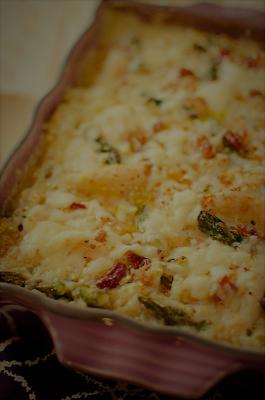





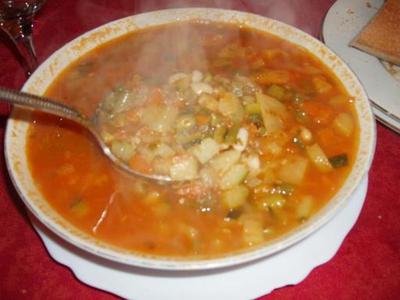


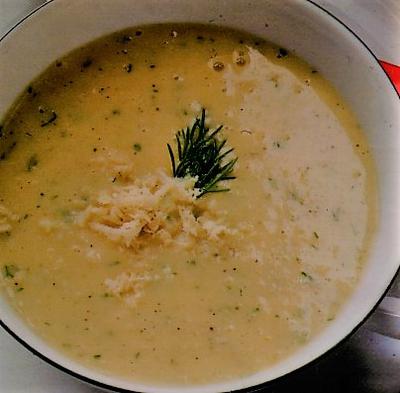

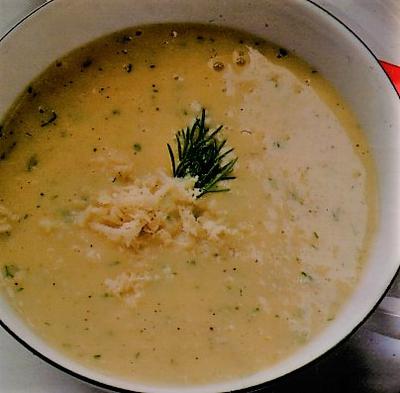


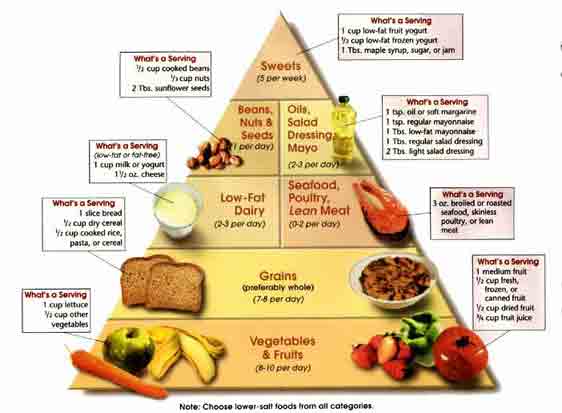

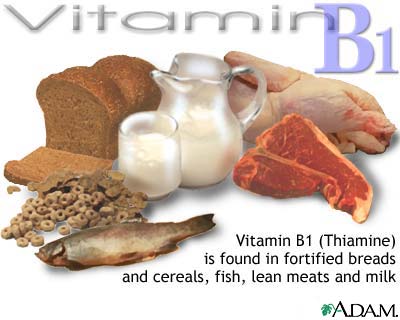

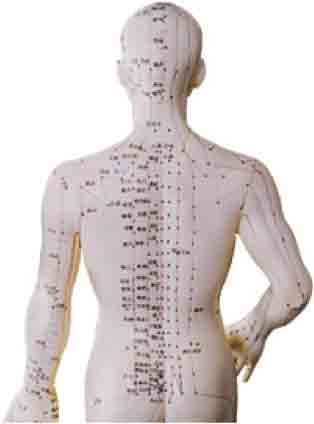
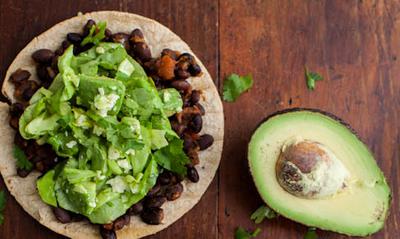
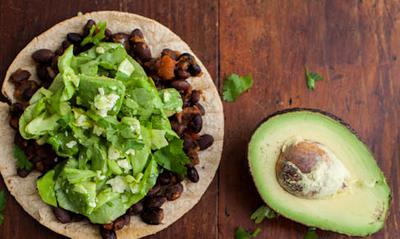
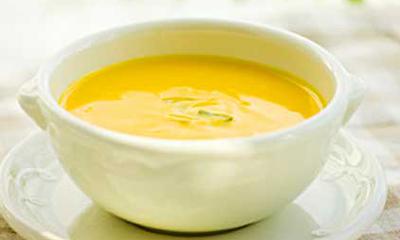

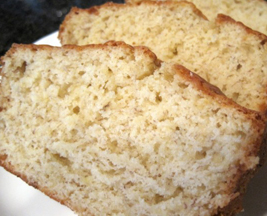
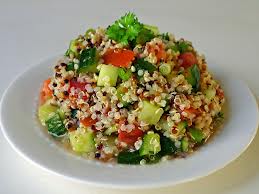
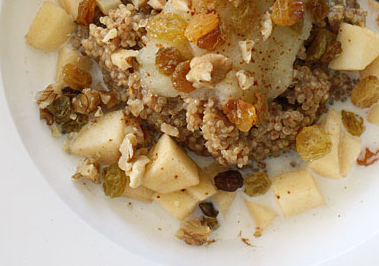

New! Comments
Have your say about what you just read! Leave me a comment in the box below.